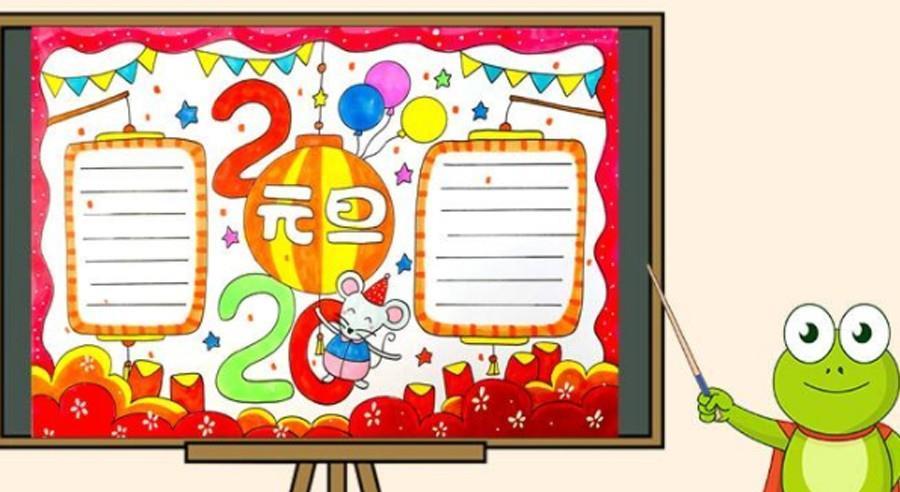Years are like shuttles, time is like an arrow, a blink of an eye, 2019 has passed, 2020 has arrived. From 00:00 p.m. on January 1, 2020, everyone hopes that in the new year, all the bad luck will be gone and good luck will come. Because the meaning of January 1st is different from other days, it means the beginning of a new year. January 1st, which is New Year's Day, commonly known as "New Year" in most countries in the world, is the first day of the new year in the Gregorian calendar.

Of course, the first day of the new year is called New Year's Day, which is naturally related to the meaning represented by the two words themselves: Yuan, the beginning of all things is called "Yuan", which refers to the beginning, which has the first meaning; Dan, which is a hieroglyph, the "day" above represents the new day, and the "one" below refers to the horizon, which refers to the rising of the sun from the horizon, symbolizing the beginning of a new day. The word New Year's Day first appeared in the Book of Jin: Emperor Zhao took the mengxia first month as the yuan, in fact, the spring of the new year's day.
It can be seen from here that the origin of New Year's Day may have a lot to do with one of the Three Emperors and Five Emperors. Of course, this is a folk tale that originated more than four thousand years ago. Legend has it that in ancient times, this Yao Tianzi was a good monarch who worked hard to govern and seek the well-being of the people, and he was diligent in his reign and did a lot of good things for the people. However, because none of Yao's own sons were talented, and Shun was very prestigious in the people at that time, he was also a good leader who was willing to benefit the people.
Therefore, adhering to the principle of putting the people first, Yao ceded his position to Shun. Of course, Shun himself was also a good monarch, and in order to thank Yao for his wisdom, Shun continued to carry forward Yao's spirit of serving the country and the people during his reign, and also did a lot of practical things for the people. Later, people regarded the day when Shun worshipped Heaven and Earth and Yao as the beginning of the year, which was the ancient New Year's Day.
In fact, in ancient times, the date of New Year's Day was not very fixed. The ancient Chinese New Year's Day actually refers to the first day of the first lunar month in the lunar calendar. The lunar calendar of the Xia Dynasty used the first month as the first month, the lunar calendar of the Shang Dynasty used the waxing moon as the first month, the lunar calendar of the Zhou Dynasty took November as the first month, and after qin shi huang unified the six kingdoms, it took October as the first month. However, starting with Emperor Wu of the Western Han Dynasty, the Han Dynasty set the first month (January) of the lunar calendar as the first month of the lunar calendar, and the first day of the first month of the first month as New Year's Day, and this rule was continued until the end of the Qing Dynasty.
In the Republic of China period, January 1 of the solar calendar (Gregorian calendar) was called "New Year", but at that time it was not called New Year's Day, until the founding of New China in 1949, it was decided to take January 1 of the solar calendar as New Year's Day, so New Year's Day is also called the solar calendar year in China. Of course, China is not the only one in the world who celebrates New Year's Day, but because the longitude position of various countries in the world is different, the time of each country is different, so the date of New Year's Day is also different.
Denmark, for example, has the habit of sending fragments on New Year's Day. On the night before New Year's Day, people will quietly deliver the cup and plate fragments they usually collect to the doors of relatives and friends. Because if there are more pieces in front of anyone's door, it means that the family will definitely have good luck in the new year, which is somewhat similar to China's broken peace. The French way is very popular and loved by everyone. Because the French will drink all the remaining wine at home before the new year's day, in the eyes of the French, only by drinking the remaining wine at home will they have good luck in the new year.
Of course, in China, people do not attach as much importance to New Year's Day as they do to the first day of the first lunar month, so in many cases they only follow part of the New Year's celebration method: such as worshipping ghosts and gods, worshipping ancestors, and so on. And the most important thing is to spend time with friends and family. After all, New Year's Day is a statutory holiday, and everyone has a holiday on this day. However, no matter how different the origin of New Year's Day and the customs of different places, everyone's expectations for this day are the same. Because who wouldn't want to have a better day in the New Year? Therefore, New Year's Day is more of a sustenance and a hope for everyone.